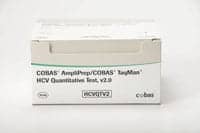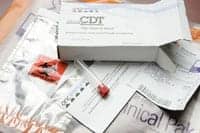Results of a national study of nearly 76,000 laboratory tests for monitoring prescription drug use indicate that the majority of Americans tested misused their prescription drugs, including potentially addictive pain medications. The results show that more than three in five, or 63%, of patients tested through Quest Diagnostics were inconsistent with clinician orders. The findings suggest many Americans take prescription medications in ways, from missing doses to combining medications with other drugs without a clinician’s oversight, which put their health at risk.
The study found high rates of inconsistency with clinician orders among all specific drug classes tested, including opioid pain medications, such as oxycodone (including OxyContin) (44%), central nervous system depressants like alprazolam (including Xanax) (50%), and the stimulant amphetamine (such as Adderrall) (48%). High rates of misuse were found in women and men across all ages, income levels, and government and commercial health plan coverage.
“The current study from Quest Diagnostics, involving a large nationally representative sample of patients undergoing urine drug testing, suggests that many patients do not take potentially dangerous prescription medications as prescribed,” said Keith Heinzerling, MD, assistant professor with the UCLA Department of Family Medicine and UCLA Center for Behavioral and Addiction Medicine. “The study provides a unique perspective on the problem of prescription drug misuse by comparing what the doctor indicates is the patient’s prescribed medication to what is actually in the patient’s urine test.”
The Quest Diagnostics Health Trends report Prescription Drug Misuse in America, Laboratory Insights into the New Drug Epidemic is based on an analysis of 75,997 de-identified urine lab test results of patients of both genders in 45 states and the District of Columbia performed by the company’s clinical laboratories in 2011. Patients were tested for the presence of up to 26 commonly abused prescription medications and illicit drugs, such as cocaine and marijuana.
The entire report is now available here.
Source: Quest Diagnostics



